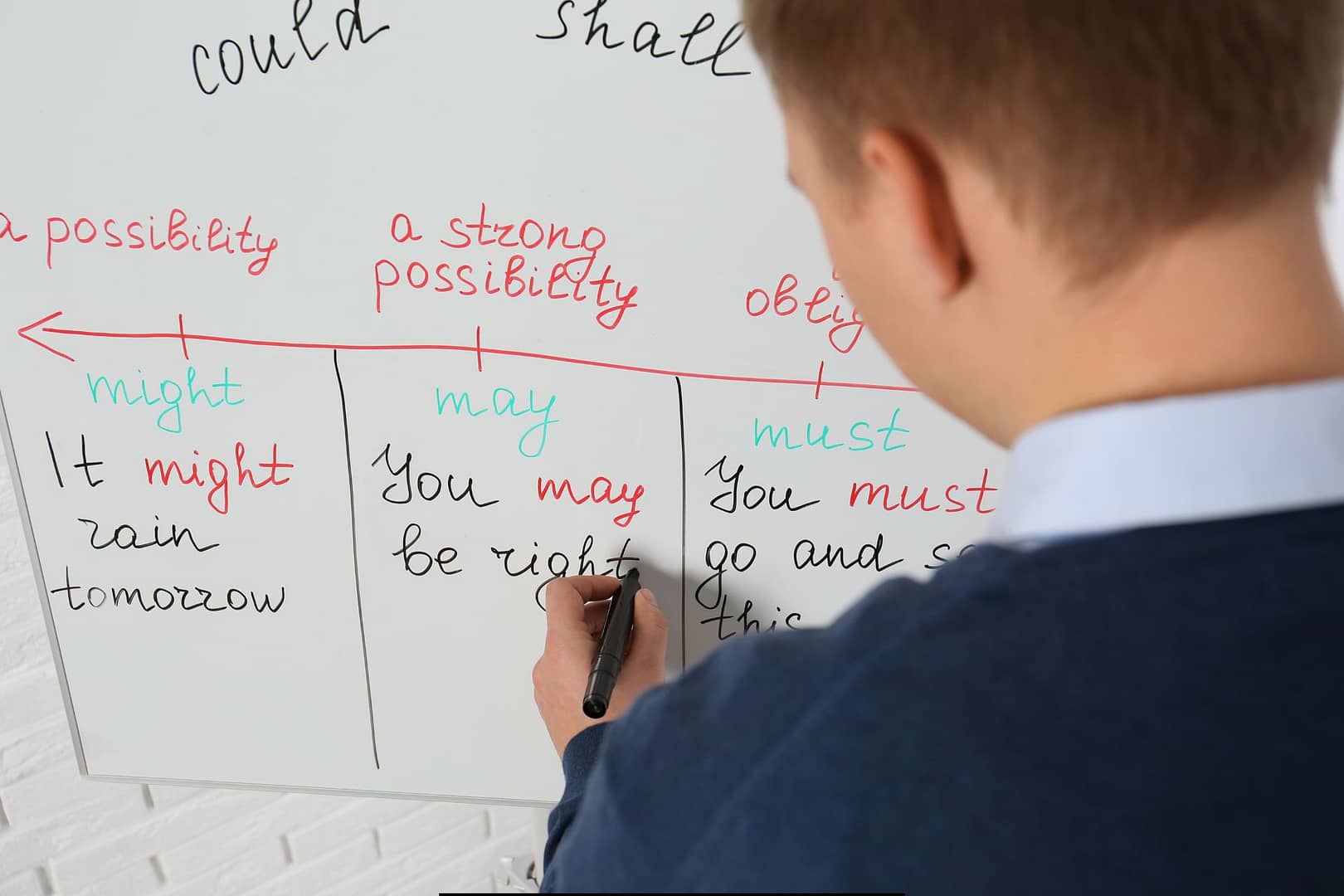Ever noticed how some words do a lot of heavy lifting in our sentences? Meet “shall,” “will,” and “may,” the unsung heroes of English grammar. These modal verbs might be small, but they wield immense power in shaping our communication. Let’s break down each one, understand their superpowers, and learn how to use them like pros.
Shall: The Formal Commander
“Shall” is like the elder statesman of the modal verbs, exuding authority and formality. Imagine an old-school butler politely insisting on proper behavior, and you’ve got the essence of “shall.”
- Usage:
- Future Intentions: Traditionally, “shall” was used with “I” and “we” to indicate future actions. Think of it as a gentle promise. “I shall return by evening.”
- Obligations and Commands: In legal or formal contexts, “shall” lays down the law. “The tenant shall pay rent on the first of every month.”
- When to Use:
- If you want to sound formal or authoritative.When drafting legal documents or formal agreements.
Will: The Everyday Hero
“Will” is the go-to modal for expressing future actions, making it the workhorse of our daily conversations. It’s friendly, straightforward, and gets the job done without fuss.
- Usage:
- Future Actions: “Will” effortlessly sets things in the future. “She will call you tomorrow.”
- Promises and Offers: It’s perfect for commitments. “I will help you with your homework.”
- Spontaneous Decisions: When you make a quick decision. “I’m thirsty. I will get some water.”
- When to Use:
- Anytime you’re talking about future events.
- When making promises or spontaneous decisions.
May: The Polite Grantor
“May” is the embodiment of politeness and possibility. It’s the word you turn to when you need to ask for permission or discuss potential outcomes without stepping on any toes.
- Usage:
- Permission: “May” is the courteous way to ask for or grant permission. “May I leave the table?”
- Possibility: It’s also great for discussing potential events. “We may go to the beach this weekend.”
- When to Use:
- When you want to be polite and formal.
- When discussing possibilities or asking for permission.
Putting It All Together
Imagine you’re planning a surprise party. Here’s how our dynamic trio might come into play:
- Shall: “We shall prepare the decorations by noon.” (Formal and planned obligation)
- Will: “I will invite all our friends.” (Future action and promise)
- May: “May we use your garden for the party?” (Polite request for permission)
Each modal verb brings its unique flavor to the sentence, making your communication precise and effective. Whether you’re drafting a formal document, planning future activities, or politely seeking permission, “shall,” “will,” and “may” are your trusty sidekicks, ready to help you express yourself with clarity and style.

